HackUTD’19: A 24-Hour Marathon of Student Innovation, Creativity, Learning, and Fun
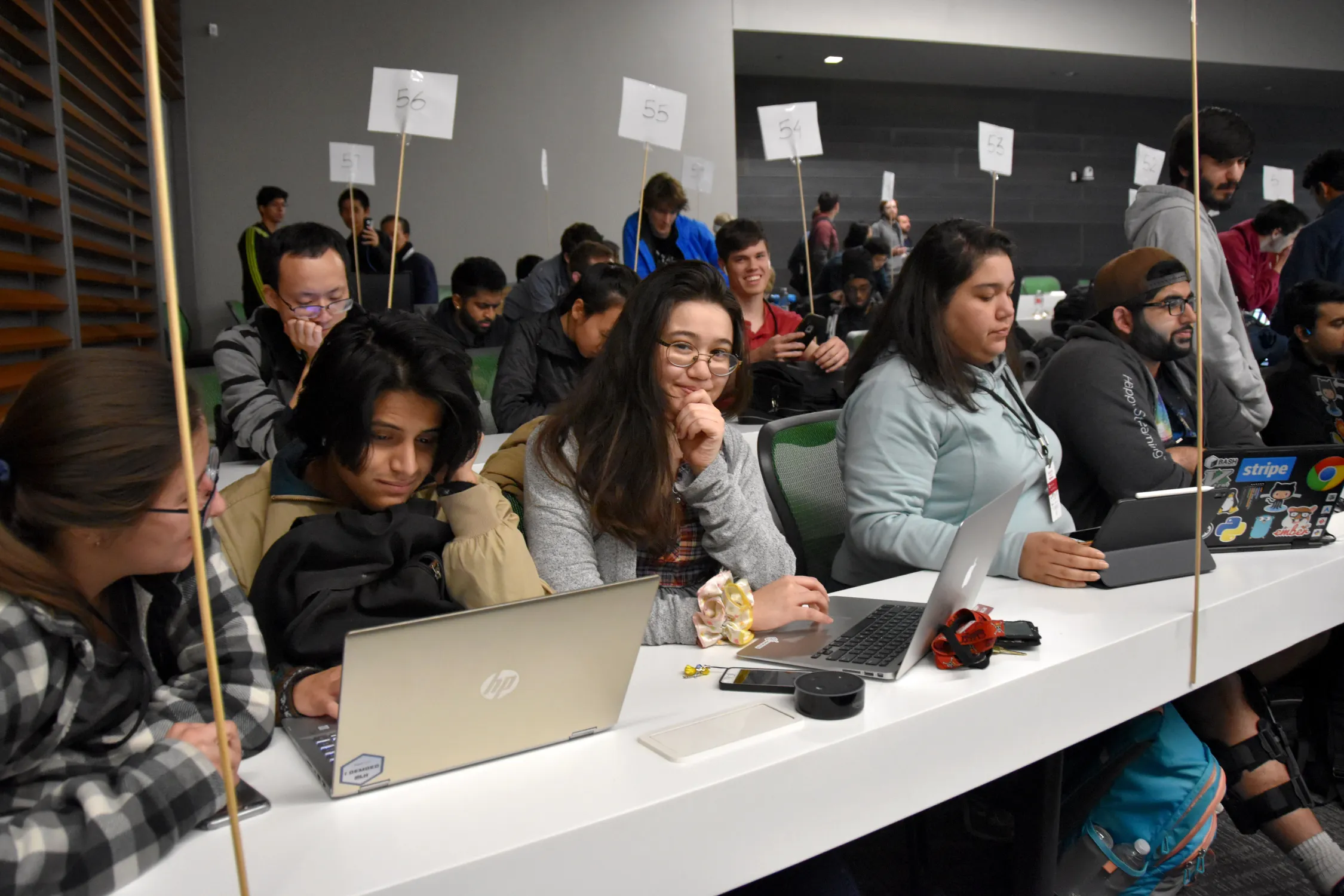
This past February, HackUTD, a 24-hour annual hackathon, organized by UT Dallas Student Chapter of the ACM in partnership with the Major League Hacking (MLH) Organization, was held in UT Dallas’s newest building, Engineering & Computer Science West. HackUTD ’19 was organized under the guidance of UT Dallas CS Professor John Cole who serves as the ACM (Association for Computing Machinery) faculty sponsor. This year’s ACM HackUTD team consisted of Matthew Le, HackUTD Director, Mustafa Sadriwala, ACM UTD Director of Industry and HackUTD industry coordinator, the HackUTD experience coordinators Jacob Liou, Omar Riaz and Guangze Zu; the HackUTD logistics coordinators Maria Dunning and Camden Squire, the HackUTD industry coordinators Obinna Nwokocha and Aneesh Saripalli; and the HackUTD marketing coordinators Varika Pinnam, Sthitadhi Sengupta, and Kumuda Aggarwal. The ACM at UT Dallas raised $42,000 for this year’s HackUTD. This event encouraged college students to come together for just 24-hours to design and build creative and original solutions for real-world problems. HackUTD saw the highest number of hackers in its five-year history with over 1,600 applicants and ultimately with 650 participating students lining up out the door to participate in the 24-hour event. Participants came not only from all over Texas but also from locations as far-flung as Leeds, England, Florida, Oklahoma, New York, Georgia, and California. This year’s hackathon also had the largest number of final projects with over 100 projects submitted for judging.
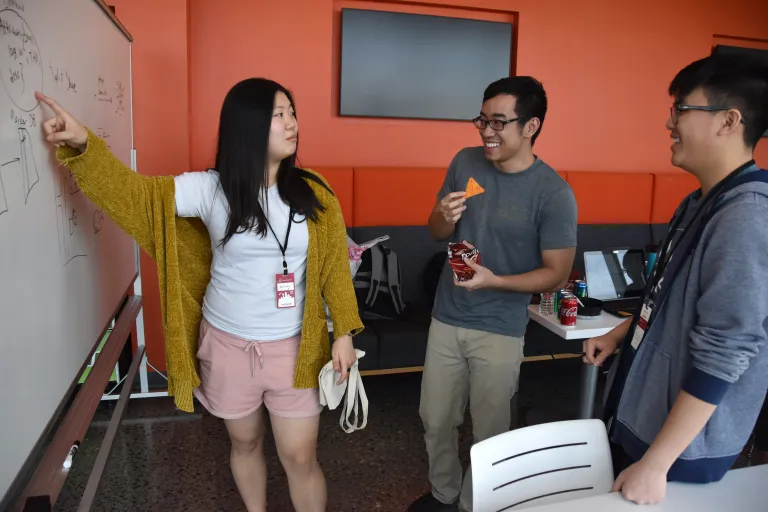
HackUTD encourages students to use their imagination and knowledge of computer science to produce solutions that solve real-world problems by thinking outside the box. It also allows participants the freedom to learn new concepts, work with friends, step outside their comfort zone, and showcase their skills. This year’s projects included, among others, an automated recycling bin powered by computer vision and machine learning, a Google Assistant that helps students send in requests for computer repairs by asking questions and collecting information about their computer issue, and a Mortgage Risk Analytics Engine driven by machine learning that works to predict the viability of an acquisition.
At HackUTD, student teams race against the clock to take their ideas and make it into a working prototype in just 24-hours. In HackUTD’s case, those problems are presented in the form of challenges by sponsors such as Google, JPMorgan Chase, Fannie Mae, Citibank, State Farm, Major League Hacking, UT Dallas, and more. Sponsor challenges included JPMorgan Chase “Best Hack for Social Good” challenge, Fannie Mae’s challenge to create an app or website that helps potential home buyers pick their perfect neighborhood, building an innovative and viable application using Google Assistant and the Actions on Google Platform, and various challenges geared towards developing applications/services/solutions for improving life at UT Dallas.
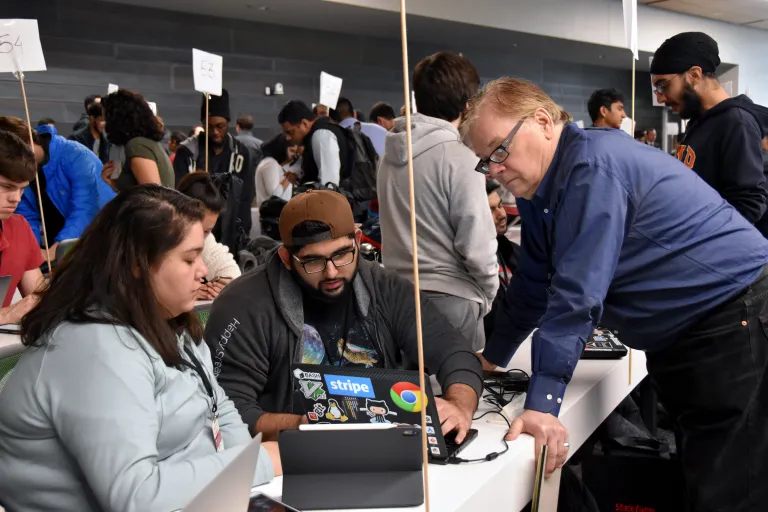
A significant aspect of HackUTD is the interaction between the students, sponsors, and industry mentors. Students were free and encouraged to network with company representatives and get assistance on projects from mentors. HackUTD and hackathons in general work as an incredible tool for students to build upon their past experiences with real hands-on activities, while learning new skills and developing creative solutions using advanced technologies. During the 24-hour event, students were offered the option to attend various industry-led workshops tech talks hosted by the event sponsors, to gain insight into the role of technology in their industry. Non-coding related activities like cup stacking and Super Smash Bros Tournament were offered along the way as a way to help students unwind and relax.
The students officially began working on their respective projects at noon, Saturday, following registration and opening ceremonies. Many of the students stayed awake for the full 24-hours in order to finish their project by noon Sunday. Finally, after an exhaustive 24-hours of hacking, teams submitted their final projects and subsequently spent two hours showcasing their ideas in a science-fair-like manner to a judging committee consisting of tech industry members, sponsor representatives, and UT Dallas faculty. This year’s HackUTD had its largest number of final submissions with over 100 projects. Teams were judged on categories including uniqueness, technicality, viability, UI & UX design, complexity, usefulness, and impact factor. Winning teams in each challenge were awarded prizes. There were also prizes from each of the company sponsors. In total, this year’s prizes were valued at over $15,300.
The following are brief descriptions of first, second, and third place winning projects of HackUTD’19:
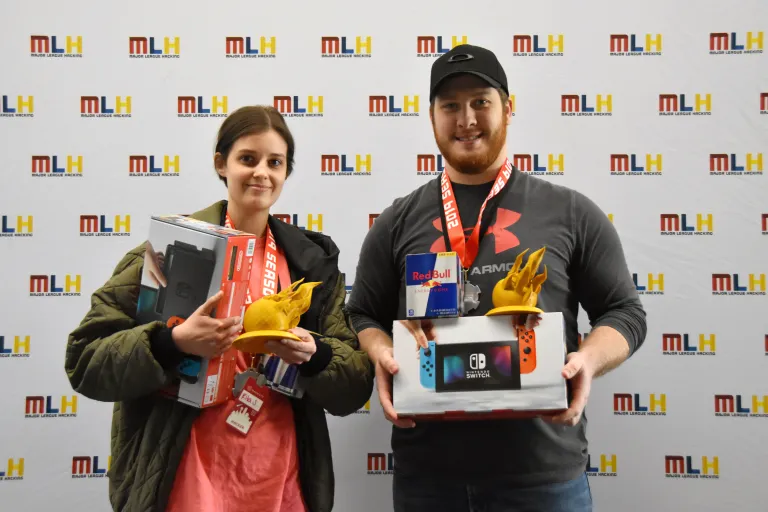
First Place – Temocracy– Temocracy is a mobile app that connects the UT Dallas student body with their student government. With Temocracy, students can see who is currently in office, read about candidates, see how candidates are doing via polls, sign active petitions, and even vote!
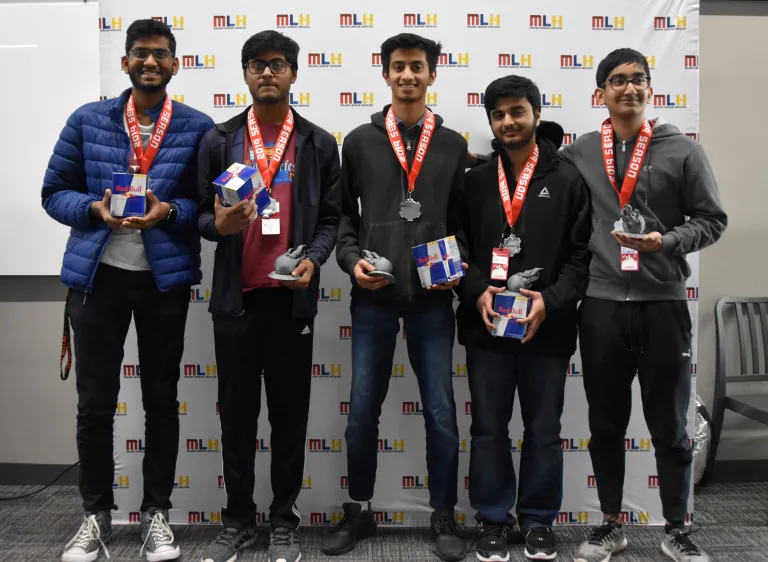
Second Place – DormDash – DormDash is a food delivery service mobile app that hires UT Dallas students who are familiar with the layout of a campus and its dorms instead of outside delivery drivers/runners who may not be familiar the campus. By focusing only on restaurants on college campuses, DormDash is able to offer a more personalized approach to the food delivery service. Students can choose whether or not they want to deliver based on where they’re going, and will never be stuck with some far-off out-of-the-way delivery. Additionally, the DormDash team wanted to tap into the free-food market at colleges, so DormDash includes a feature where users can add events that will have free food available.
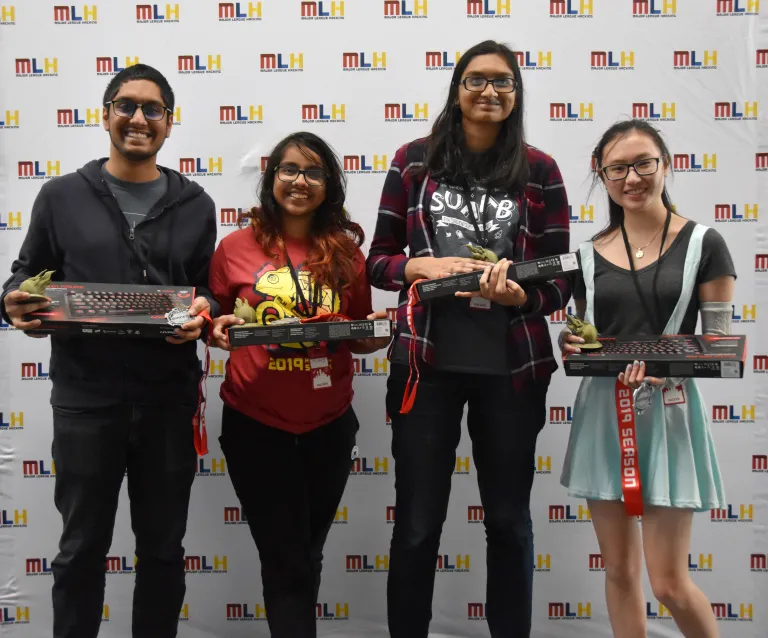
Third Place – SpaceFinder– SpaceFinder is an app that lets students see all the study rooms in a building along with their current occupancy, function, and privacy settings. Students can edit room preferences and are provided the ability to check-in to a study area by scanning a QR code.
Winners of the Sponsor challenges were presented as well, these include:
- State Farm Challenge Winners
- Citi Challenge Winner
- Fannie Mae Challenge Winners
- JP Morgan Chase Challenge Winner
- Google Challenge Award Winners – Best Use of Google Assistant
- Best Use of Open Source Winner
- UT Dallas Office of Information Technology Challenge Winners
- Best UI/UX Challenge Winner
- Mystery Challenge
- Major League Hacking (MLH) – Best Use of Google Cloud Platform Challenge Winner
- Major League Hacking (MLH) – Best Domain Using Domain.com Challenge Winner
- Major League Hacking (MLH) – Best IOT Hack Using a Qualcomm Device Challenge Winner
The 6thHackUTD will take place next spring and will once again be hosted by the ACM at UT Dallas with the partnership of MLH and UT Dallas. The UT Dallas Computer Science Department regularly hosts hackathons throughout the year. For the first time, UT Dallas co-hosted Hacks for Humanity, a 36-hour hackathon, which originated at Arizona State five years ago. Dozens of computer experts and nonexperts joined Arizona State University in tying technical knowledge to compassion in an effort to solve societal ills (click here to read more about the Hacks for Humanity Hackathon). Another hackathon that took place last fall was 2nd Annual HackAI. The UT Dallas student-run AI Society used the opportunity of a hackathon to explore the revolutionary way that artificial intelligence impacts everyday life by hosting its 2ndAI themed hackathon (click here to read more about HackAI). HackAI was sponsored by the Dallas Mavericks, CBRE, Atos, SignaPay, DeepCognition, and the UT Dallas Computer Science Department.
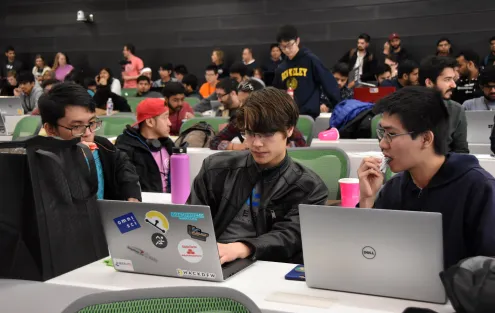
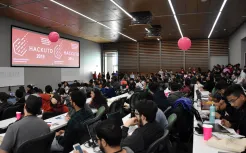
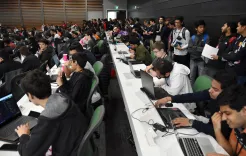
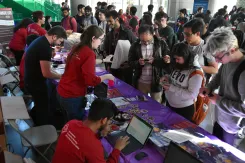
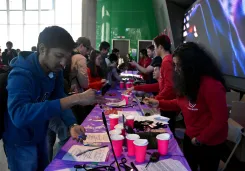
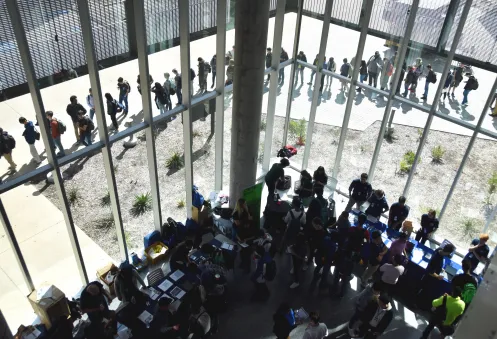
Click here for more photos from HackUTD 2019.
For updates on UT Dallas CS events click here and for information on ACM at UT Dallas events, please visit their website and their facebook page.
ABOUT THE UT DALLAS COMPUTER SCIENCE DEPARTMENT
The UT Dallas Computer Science program is one of the largest Computer Science departments in the United States with over 2,800 bachelors-degree students, more than 1,000 master’s students, 190 Ph.D. students, 52 tenure-track faculty members, and 41 full-time senior lecturers, as of Fall 2018. With The University of Texas at Dallas’ unique history of starting as a graduate institution first, the CS Department is built on a legacy of valuing innovative research and providing advanced training for software engineers and computer scientists.




